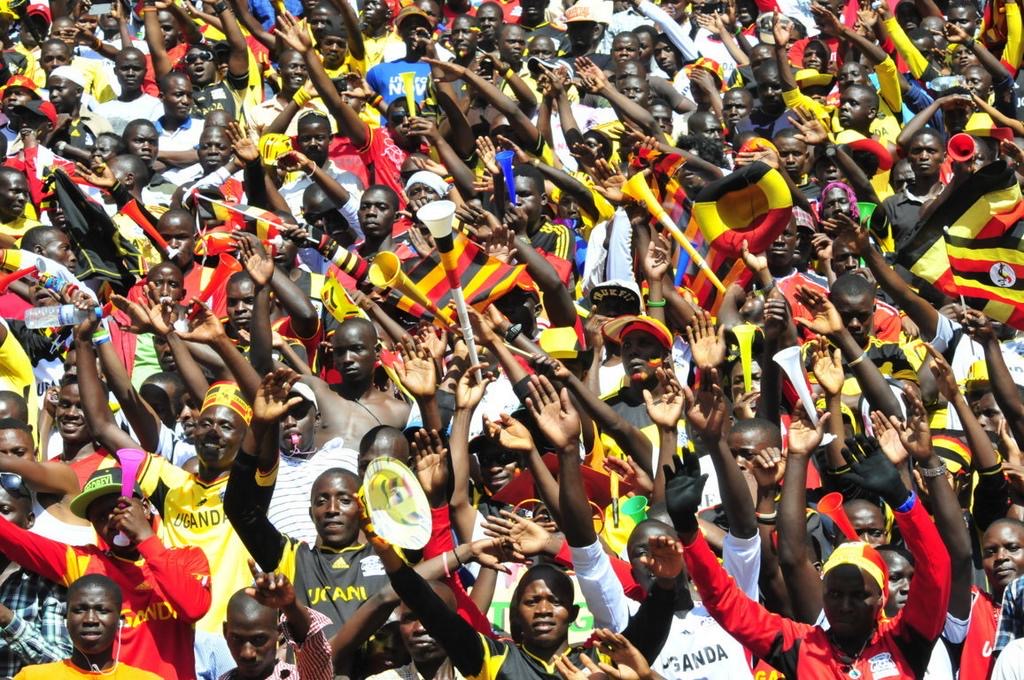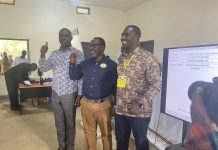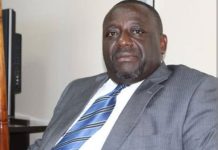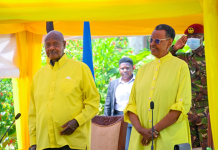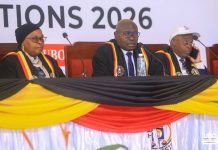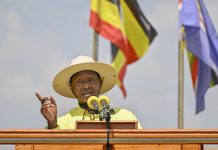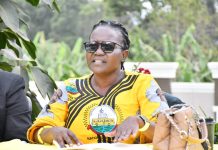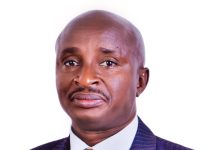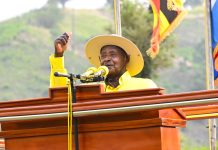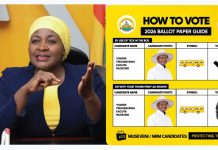By Nabakiibi Dorren Malaika
The 2025/26 Uganda Premier League season has kicked off under a bold new format, but instead of uniting the game, it has opened up deep fault lines. Boycotts, fan backlash, and sharp calls for dialogue now overshadow what was meant to be a fresh chapter for Ugandan football.
Veteran football administrator Jabeli Bidandi Ssali has weighed in on the growing standoff between FUFA and some of the country’s top clubs, describing it as “a leadership test, not a crisis,” and warning that pride could undo decades of progress in Ugandan football.
Bidandi, one of the founding figures of KCC FC and a towering voice in the sport’s early development, reminded the current football leadership that Uganda’s game has historically thrived on dialogue, shared vision, and respect for structures. Those values helped shape the league from its modest beginnings in 1968 into a competition that became a source of national pride.
His intervention comes at a time when the 2025/26 Uganda Premier League (UPL) season has kicked off under a revamped three-phase format, triggering disputes, boycotts, and sharp warnings that the game risks sliding into a damaging split.
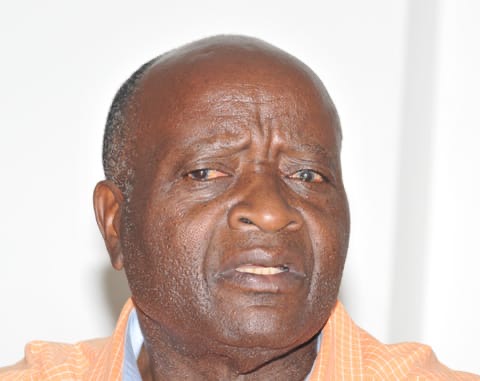
What’s Different in the New League Format?
Under the new structure, the UPL now unfolds in three distinct phases:
- Phase One – All 16 clubs play each other once (single-leg).
- Phase Two – Clubs are split into two groups (top 8 and bottom 8) and play home-and-away fixtures within those groups.
- Phase Three –
• The top 6 from the upper group enter a championship playoff (one leg).
• The bottom 6 from the lower group fight to avoid relegation (one leg).
Supporters, clubs, and sponsors were told this model would make the competition “faster, fiercer, fairer.” Critics, however, argue that the changes dismantle long-held traditions, distort revenue flows, and were imposed without genuine consultation.
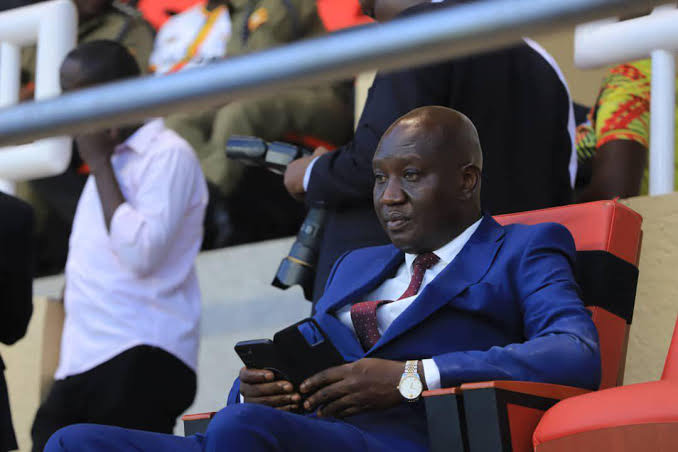
Mulindwa’s Stand: “We Will Not Participate (Yet)”
The sharpest resistance has come from Dr. Lawrence Mulindwa, majority shareholder and president of Vipers SC, and a former FUFA president.
In a public statement on October 2, 2025, Mulindwa announced that Vipers would not take part in the scheduled double-header fixture against Kitara FC unless FUFA addressed their grievances formally and respectfully.
In his letter to FUFA, Mulindwa accused the federation of:
- Disrespect, blackmail, and ostracizing dissenting clubs.
- Failing to respond to multiple petitions.
- Imposing pre-decided changes without genuine stakeholder buy-in.
- Making promises — such as the UGX 3.4 billion investment — that lack credibility.
In interviews, Mulindwa declared he would not “be part of a system that ignores what clubs and fans demand,” calling the process coercive.
His firm stance has unsettled the football establishment. Some see it as a calculated power play; others view it as a principled stand against overreach.
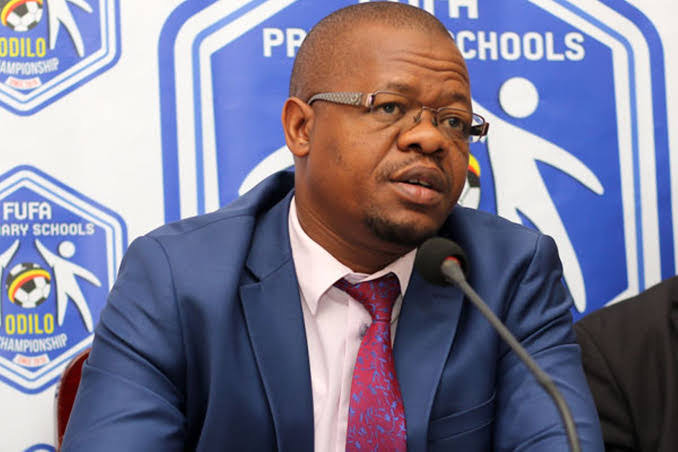
Magogo’s Response: Reform Must March On
Dr. Moses Magogo, FUFA President, has defended the reforms and called for unity, insisting the new format is crucial for modernization, competitiveness, and attracting sponsorship.
Magogo maintains that clubs were consulted, adjustments were made, and that FUFA remains open to dialogue even as it expects all teams to honor their fixtures.
On social media, he highlighted increased prize money and incentives under the revamped system. FUFA has directed Vipers SC to fulfill its fixtures, noting the club had applied for a license and signed a compliance form indicating commitment to the season.
Inside FUFA, the belief is that dissenters will eventually fall in line. However, many observers say the federation’s tone has been heavy-handed.
Amid the escalating row, the Uganda Premier League Secretariat issued a strongly worded press release on October 9, 2025, responding to Vipers SC’s public statements and clarifying several points that the club had raised.
In the statement, the Secretariat noted that 15 of the 16 registered clubs had embraced the new competition reforms following “thoughtful and inclusive consultations,” with Vipers SC the only holdout. It reiterated FUFA and the UPL’s commitment to maintaining an open and collaborative relationship with the club, saying they would “continue reaching out in good faith to work together toward shared goals and the bright future of Ugandan football.”
The Secretariat also confirmed that Vipers SC had received UGX 110 million in legitimate earnings within the last three months, including UGX 60 million for winning the 2024/2025 UPL title, countering suggestions that the reforms were financially punitive.
It further defended FUFA’s access to player registration data, stating it is both legal and procedural — in line with FUFA and CAF Club Licensing Regulations and is necessary for ensuring integrity and transparency across all clubs.
On governance, the UPL Secretariat rejected Vipers’ suggestion that other clubs were “small clubs,” emphasizing that all clubs hold equal shares and voting rights in the league’s structure.
The statement underscored that the current reforms were the product of broad stakeholder consultations, involving clubs, legal teams, sponsors, and FUFA’s technical departments. It also pointed out that the two-year contract threshold adjustment was not a new imposition but the outcome of a collective club decision aimed at balancing player welfare with financial sustainability a principle widely adopted internationally.
Teams That Accepted to Participate
While Vipers SC, SC Villa, and NEC FC stood in opposition, several clubs have opted to take part in the new format:
- KCCA FC expressed readiness to “move with football’s evolution,” albeit cautiously.
- URA FC called the format “a progressive step toward commercialization.”
- BUL FC acknowledged discomfort but said they were “ready to compete under any fair system.”
- Kitara FC criticized Vipers’ boycott, urging all clubs to respect the season’s spirit.
- Mbarara City FC, Gaddafi FC, Busoga United, Wakiso Giants, Express FC, and Maroons FC all confirmed participation, saying they would let “football do the talking on the pitch.”
Their collective argument is that playing while pushing for gradual reform is better than sitting out entirely. Though skeptical, many fans have backed these clubs to focus on results first.
Voices from the Stands — Fans Speak Out
The discontent has spread from boardrooms to the terraces. Supporters’ associations have demanded the suspension of the reforms and an inclusive stakeholder forum, calling for a return to the traditional home-and-away format until consensus is reached.
Many fans accuse FUFA of deception, especially after tickets were sold for a doubleheader at Namboole featuring Vipers vs Kitara despite Vipers’ official withdrawal.
Some supporters feel betrayed by clubs like KCCA and Villa for not joining the resistance, while others have threatened to shift allegiance to Vipers in solidarity.
The hashtags #BoycottUPLand and #RespectTheGame trended as fans vented their frustration online. At Mandela National Stadium during the inaugural doubleheader, the subdued atmosphere and empty seats told their own story.
“If Vipers aren’t playing, why should I pay? They are taking us for fools,” one fan remarked.
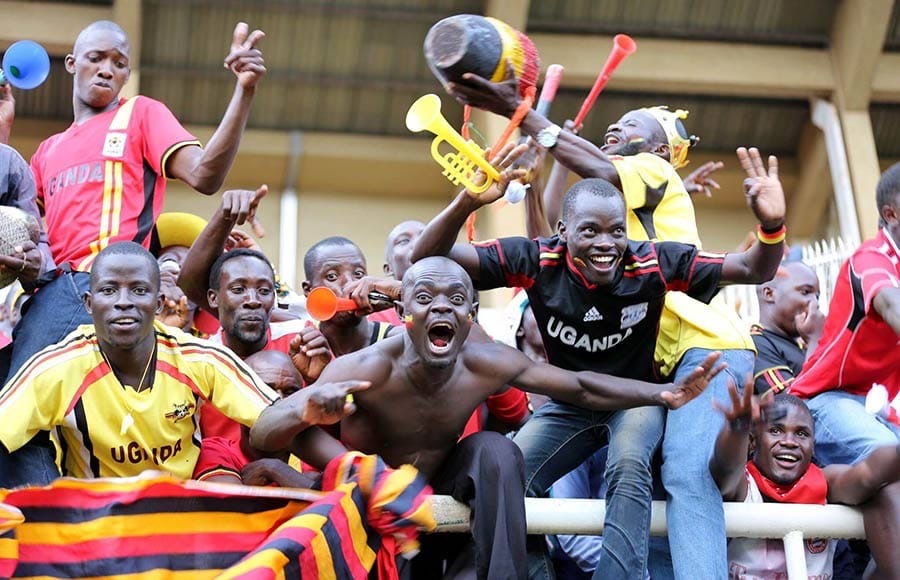
Legends Weigh In
Former Uganda Cranes internationals and club legends have added their voices to the debate, reflecting deep experience and concern. Among them: George Ssemwogerere, Jackson “Mia Mia” Mayanja, Paul Ssali, Gibby Kalule, and Iddi Batambuze.
- Unity First: George Ssemwogerere urged leaders to protect the spirit of the game before personal interests, warning that “if leaders fight, the players and fans suffer.”
- Cautious Optimism: Jackson Mayanja supported innovation but emphasized the need for broad consultation.
- Demand for Accountability: Paul Ssali warned that reforms without transparency could collapse mid-season, calling for a public financial roadmap.
- Measured Experimentation: Gibby Kalule suggested piloting the format for one or two seasons and letting data guide the future.
- Governance Critique: Iddi Batambuze condemned FUFA’s tone, saying football grows through dialogue, not directives.
Across radio and online platforms, these voices have called for humility, inclusivity, and a national football summit.
Government and National Authorities Weigh In
The government has stepped into the conversation. Hon. Peter Ogwang, Minister of State for Sports, acknowledged the standoff and called for immediate reconciliation between FUFA and the clubs.
“Our role as government is to ensure stability in the game. FUFA and the clubs must return to the table. Uganda cannot afford another football split when the league should be our pride,” Ogwang said.
The Ministry of Education and Sports echoed this, urging transparency and inclusivity, reminding all stakeholders that national football belongs to the people.
Political observers suggest that government mediation could intensify if sponsors or broadcasters begin to withdraw.
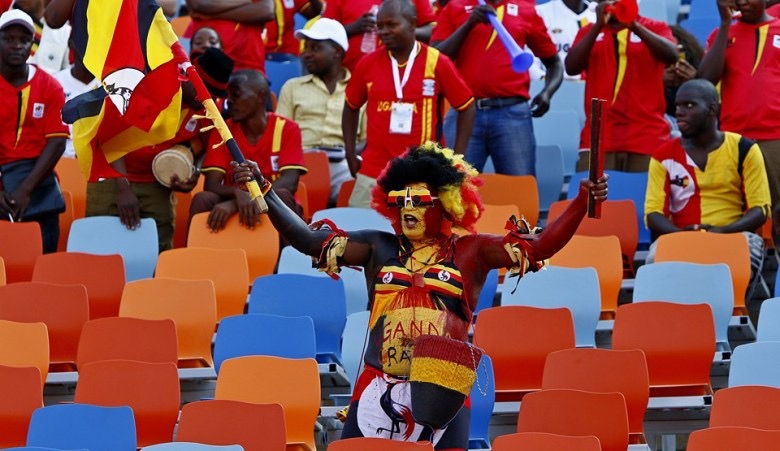
Tensions, Turning Points & Possible Futures
The current conflict goes beyond fixtures and formats. At its heart lies a power struggle over who truly controls Ugandan football — the federation, the clubs, or the fans.
Key flashpoints to watch:
- Will Vipers stick to their boycott or relent?
- Will FUFA sanction noncompliant clubs?
- Will more clubs join the resistance or quietly fall in line?
- Could a mediated compromise emerge, such as piloting the format in a lower division first?
- Will sponsors and broadcasters maintain confidence in the league?
- Could the standoff escalate to legal or FIFA intervention?
For now, the uneasy season begins under a cloud of distrust and uncertainty, with the future direction of Ugandan football hanging in the balance.


